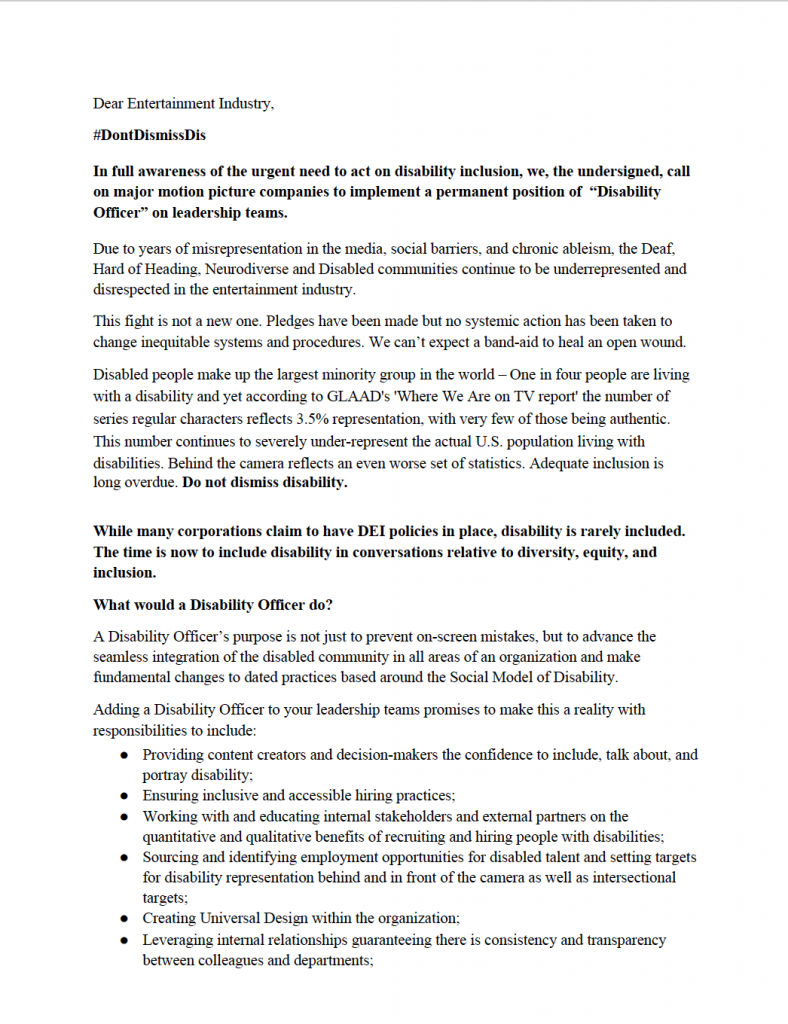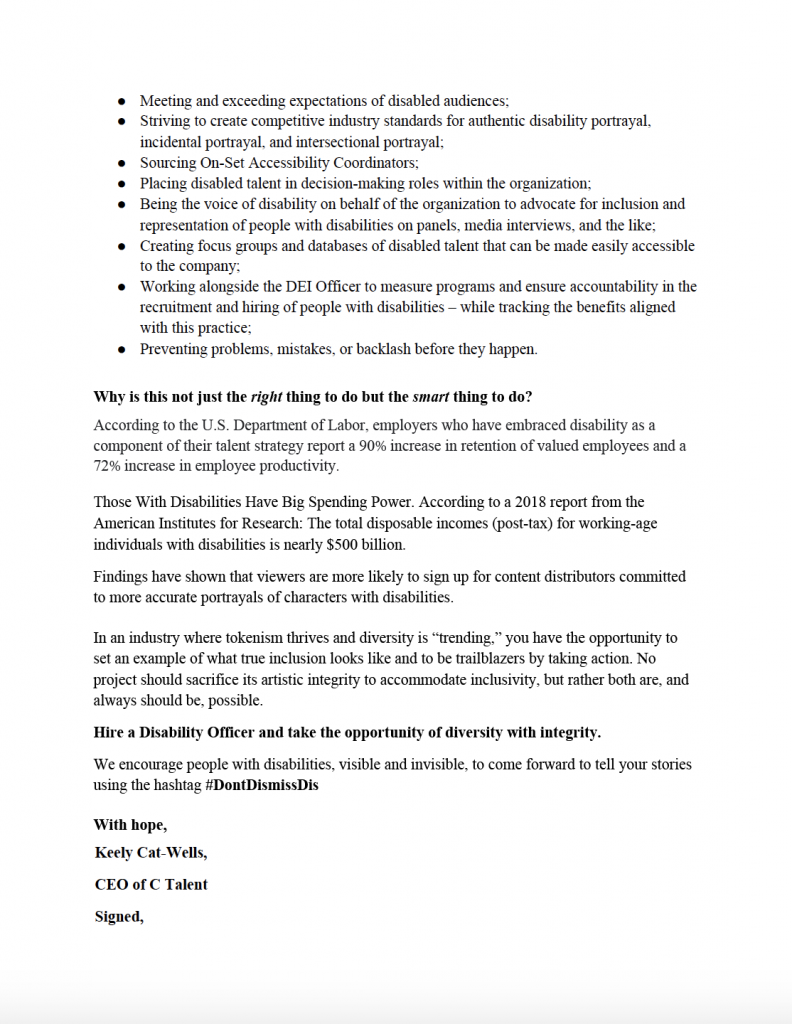#dontDismissDis
Why we wrote an open letter to hollywood
“Diversity is having a seat at the table. Inclusion is having a voice. And belonging is having that voice be heard” - Liz Fosslien
But what if we can’t access the door to get to that table?
If we don’t design for accessibility or include people with disabilities, it is like saying we don’t want the business of every fifth person who walks or rolls through the door.
From my personal experience, I didn’t understand or realize what ableism in entertainment was until I was witness to it. In 2017, I booked an acting role in a project produced by a leading company in the industry. I went to the fitting where they had me try on a low-rise bikini, which revealed my Ileostomy bag. The next day, I received an email saying that I no longer had the part. They said I was “too off-putting” to the audience and it would be “too confusing”, this could have easily been ‘fixed’ with a high-waisted bikini. This type of prejudice and discrimination is not an isolated occurrence. In short, I lost a job because of my disability. This changed my career path, not because they had made it clear that they thought I didn’t belong, but because I was fired up and ready to change the broken system in which they engage and perpetuate unknowingly. I am in the trenches daily while pledges are being made, yet inequitable systems stay in place.
Hollywood has many horror stories, but the ones least told are those of the disabled community fighting to get seen, heard, and treated as equals. At C Talent I spend most days dealing with dire accessibility, stereotypical storylines, the lack of behind-the-camera disability inclusion, unauthentic casting, and inequitable systems.
When companies realize that their campaign or project did better when they implemented accessibility and inclusion it proves that accessibility should be taken as an opportunity rather than seen as a problem to solve. I believe that accessibility is the first major step to a more inclusive and world reflecting Hollywood. The success of films like “Black Panther,” “Peanut Butter Falcon,” “Wonder Woman,” and “Coco” proves that diversity wins. Creating a diverse environment on stage, in front of, and behind the camera will influence the world we live in.
Access is required, physical and intentional. We need intersectional targets and people from marginalized communities working on all projects, not just the ones in which their culture is reflected. We need disabled talent in positions from entry level all the way to the top.
We need a Disability Officer on each leadership team as a key component to making this a reality. The Disability Officer has to be someone with a disability and will have crucial lived experience and knowledge, but also will be openly encouraged to reach out to other members of the disability community to draw on their experiences with differing disabilities to enable studios to take the opportunity of diversity with integrity.
This will create more than occasional change and a few headlines of good news, but systemic and lasting difference.
The oppression of the disabled community has been swept under the (red) carpet for too long. On a social level we are still fighting for basic equal rights, the same minimum wage, and essential accessibility. Hollywood has the incredible power to shift and shape society.
I believe to change the world we have to learn to tell and listen to a new set of stories about the world that we want to create with accessible workspaces and authentic voices. The media is being watched all the time. The power of it is unimaginable. If we paint the wrong pictures about people with disabilities, the world will see it and believe it. We have to familiarize audiences with seeing people with disabilities on their screen, authentically and in a new light with disability representation seamlessly integrated throughout entire organizations, not just on screen. Knowledge is power and the media is a global teacher whether we actively realize it when we are watching entertainment or not.
We need myths, systems, and old beliefs broken to create a new ‘perfect Hollywood’ that can make space and embrace the beauty and business diversity brings.
We have garnered many amazing supporters on this initiative, and invite everyone join us in this movement towards equality. Some notable supporters include Amy Poehler, Naomie Harris OBE, Jessica Barden, Heather Matarazzo, Parisa Fitz-Henley, Janina Gavankar, Erin Cahill, CJ Jones, The Valuable 500, Lachi, Nicholas Pinnock, Bex Taylor-Klaus, Anna-Maria Sieklucka, and HTYT Films - the creators of “Rising Phoenix.”
Are you part of a motion picture company looking to hire a Disability Officer onto your leadership team? Click on the link below to take the first step towards making real change.


